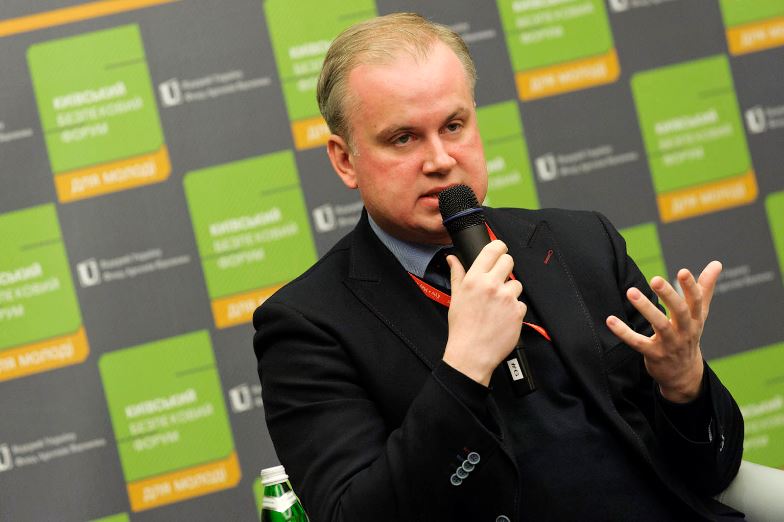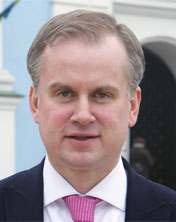More than two weeks ago, Arseniy Yatsenyuk and I visited the capital cities of two neighboring states – Vilnius and Warsaw – for meetings with Prime Minister Saulius Skvernelis of Lithuania and the head of the Polish Government, Mateusz Morawiecki.
The main topic of both discussions was Ukrainian-Polish affairs. However, more was discussed.
Of course, many positive things, including security solidarity, doubtlessly cannot be overlooked. Though anxiety is not receding but is even growing, especially in anticipation of events in this year and the next two: the 75th anniversary of the Volyn tragedy, the 100th anniversary of the Polish-Ukrainian war, local elections in Poland, and presidential and parliamentary elections in both countries.
The difficulties of our dialogue exceeded purely bilateral aspects.
In many political scenes in the region, the lead role has been overtaken by sheer egoism that is pretending to be national dignity. In that guise, it echoes in the hearts of the societies. It simmers with rage, fights for a right and only understanding of the truth, and dulls the awareness of common threats.
The region finds itself lacking a united and responsible leadership.
It is from our region that a powerful impetus must come for strengthening the European Union and NATO, European solidarity, and the Euro-Atlantic alliance with the United States and Canada.
The illegitimate and pathos-filled revanchist re-appointment of President Putin, the potential strengthening of the position of the Russian Federation in Syria, and the continued aggression against all Europeans should be an opportunity to help a United Europe – like the West helped our region – to strengthen its own internal ties and, at the same time, pay attention to the part of our space where Russian influence dominates.
Now is the time for initiatives, not for waiting.
The Prime Ministers of Lithuania and Moldova, senior officials of the Ministries of Foreign Affairs, the Ministries of Defence and the National Security Councils of the Baltic States, the Visegrad Group, Romania, Moldova and the Caucasus, will arrive in Kyiv. We expect participation of the NATO Deputy Secretary General and representatives of the US Administration (Assistant Defence Secretary and the United States Permanent Representative to NATO).
The future of this region and Europe will be discussed by members of parliament of European states, former heads of governments and foreign ministers, from the United Kingdom to Lithuania, as well as well-known intellectuals and experts, specialists in information security, writers, and philosophers.
At the core of the topics to be discussed by the Forum, there are several abstracts that will reflect a Ukrainian perspective.

First
The 100th anniversary of the restoration of Ukraine’s statehood will provide a symbolic context to the meeting in Kyiv. This is not only a memorial gesture but evidence of the same historical roots of independence, freedom and belonging to Europe that we share with our neighbors.
The majority of the European nations that restored their statehood one hundred years ago are today full members of the EU and NATO. This historical pattern must inevitably be realized in relation to Ukraine and other countries in the region, from Belarus to the states in the Caucasus.
Second
Russian aggression against Ukraine remains the most acute and most dangerous threat to the security of the region and Europe. International efforts to curb the Kremlin and achieve peace must be supported. At the same time, they should be supplemented by new initiatives and additional pressure on the aggressor.
It is equally important to remember that Ukraine has not suffered different attacks, but has been the victim of sustained aggression by Russia, which includes the occupation of both Crimea and the Donbas. Both topics are inseparable, similarly inseparable are their consequences.
Third
The human rights situation in the occupied territories of Crimea and Donbas requires an urgent international response. Collective international efforts can attract broad global attention to the catastrophic humanitarian consequences of the Russian occupation and help many innocent people.
Fourth
Russia’s aggression against Ukraine has led to enormous human losses and economic damage. The restoration of the security and territorial integrity of Ukraine equally means both the return of sovereignty over the occupied territories and bringing the aggressor to liability and compensation for the damage it has inflicted.
This must become a leading topic in the context of further strategic deterrence of Russia.
Fifth
This year marks the 50th anniversary of the Treaty on the Non-Proliferation of Nuclear Weapons. Ukraine, which voluntarily did away with its nuclear weapons, became a victim of aggression by one of the guarantors of its security. This criminal precedent poses a global danger. Restoration of confidence in security guarantees of the West has exceptional international significance.
Achieving real collective security guarantees must become the key task of Ukraine’s foreign policy agenda. Ukraine’s integration into NATO can solve the problem of the security vacuum in the region and create the preconditions for long-lasting peace on the eastern borders of Europe.
Sixth
In the struggle against Russian aggression, Ukraine cannot restrict itself exclusively to its own problems. Ukraine’s duty is to defend the interests of all partners whose rights have been violated by Russian aggression. “Frozen conflicts,” committed or inspired by Russia from the Caucasus to Moldova, must be in the line of sight of Kyiv. Ukraine must become an active advocate for its neighbors.
Seventh
Ukraine must be a leader in the idea of close regional cooperation.
No large-scale regional structure will have any strategic significance without Ukraine’s active participation.
Our national interests are equally contradicted by both the weakening international positions of our Western neighbors and the restoration of the spirit of chauvinism and xenophobia, and any other form of isolation that forms a vacuum of values – and, therefore, of security – in our region.
We must encourage an intelligent search to help consolidate the ideas that our nations and states have in common.
We need a common spirit of leadership.
That is the way it looks from Kyiv.





